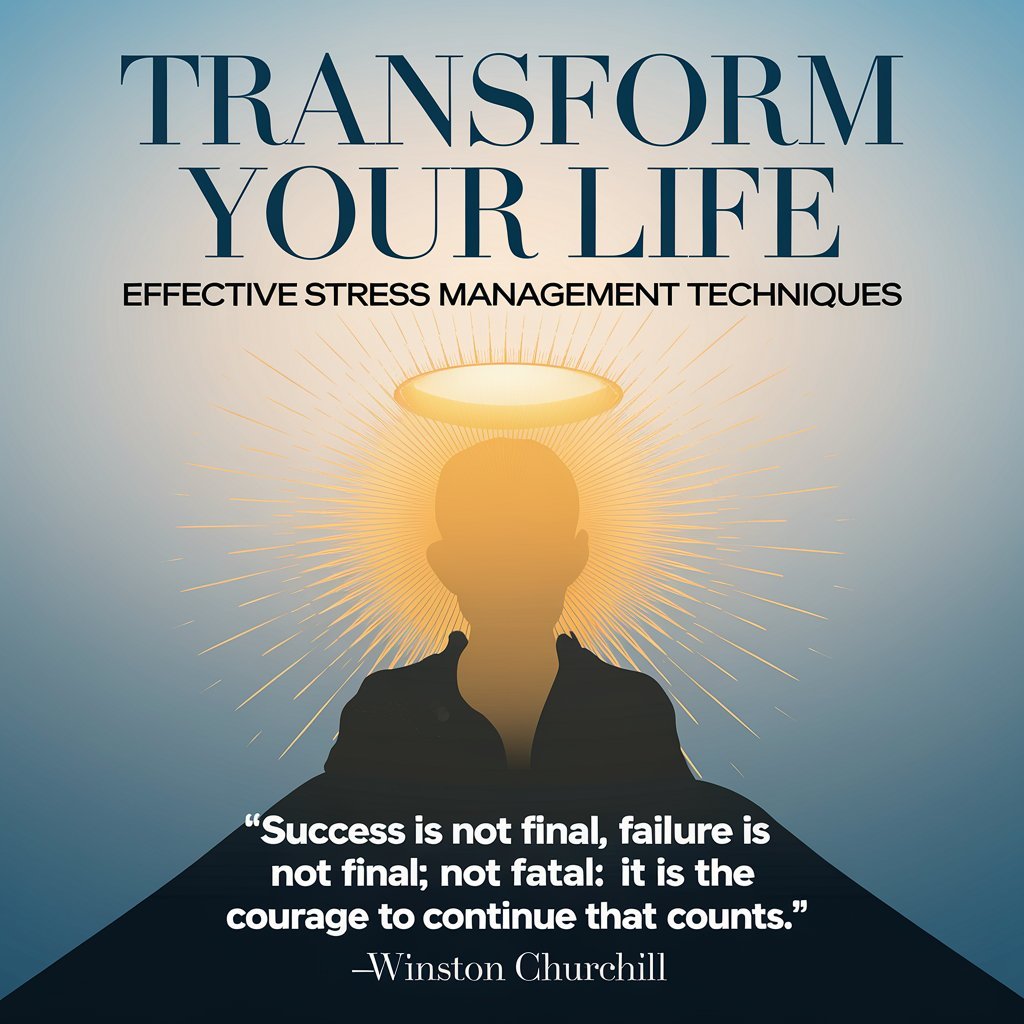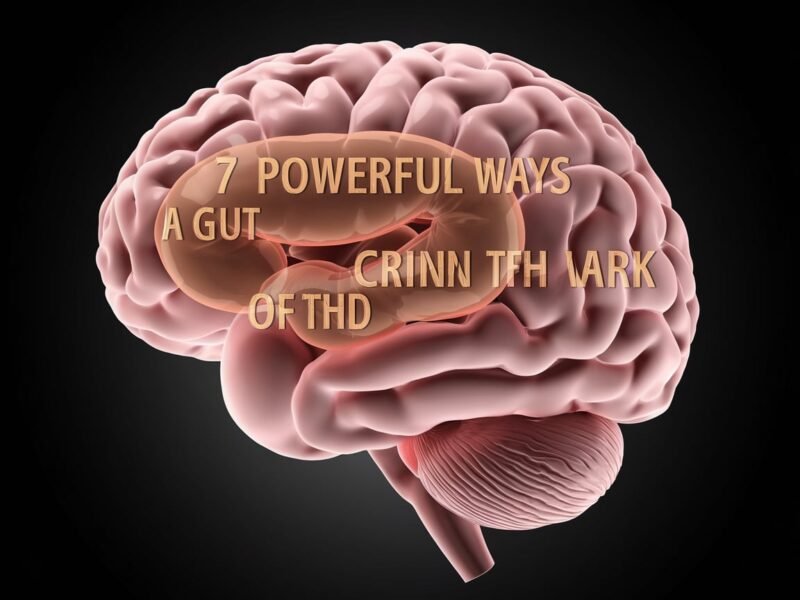Stress is an inevitable part of life. Whether it comes from work, relationships, or unexpected challenges, stress can affect our mental, emotional, and physical health. Understanding stress and how to manage it effectively is crucial for leading a balanced and fulfilling life. This article will explore the nature of stress, its effects on our bodies and minds, and practical strategies for managing it effectively.
Understanding Stress

What is Stress?
Stress is a natural response to perceived threats or challenges. It triggers a series of physiological reactions in the body, often referred to as the “fight or flight” response. When we encounter a stressful situation, our brain sends signals to release stress hormones like cortisol and adrenaline. These hormones prepare the body to either confront the threat or escape from it, resulting in various physical symptoms such as increased heart rate, heightened alertness, and rapid breathing.
Types of Stress
Stress can be categorized into two main types: acute stress and chronic stress.
- Acute Stress: This is short-term stress that arises from specific events or situations, such as a tight deadline at work, an argument with a friend, or a sudden change in routine. Acute stress can be beneficial in small doses, helping us respond to immediate challenges.
- Chronic Stress: This is long-term stress that results from ongoing situations, such as a demanding job, a difficult relationship, or financial troubles. Chronic stress can have serious implications for mental and physical health, leading to issues like anxiety, depression, heart disease, and other health problems.
The Stress Response Cycle
Understanding the stress response cycle can help us manage stress more effectively. The cycle consists of three stages:
- Alarm Reaction: This is the immediate response to a stressor, where the body prepares to face the challenge.
- Resistance Stage: In this stage, the body attempts to adapt to the ongoing stressor. If the stress continues for an extended period, the body becomes less effective at coping.
- Exhaustion Stage: Prolonged stress leads to physical and emotional depletion. This stage can result in burnout, illness, and a range of other health issues.
The Effects of Stress
Physical Effects
Stress affects the body in various ways. Common physical symptoms include:
- Headaches: Tension headaches are often a result of stress.
- Muscle Tension: Stress can lead to tightness in the shoulders, neck, and back.
- Digestive Issues: Stress can cause stomachaches, diarrhea, or constipation.
- Sleep Disturbances: Insomnia or disrupted sleep patterns are common in stressed individuals.
- Weakened Immune System: Chronic stress can weaken the immune response, making us more susceptible to illnesses.
Emotional and Mental Effects
Stress doesn’t just impact our physical health; it also takes a toll on our emotional and mental well-being. Common effects include:
- Anxiety and Depression: Chronic stress can lead to or exacerbate mental health issues.
- Irritability: Stress can make us more irritable and reactive.
- Cognitive Impairment: Stress can affect concentration, memory, and decision-making abilities.
- Burnout: Prolonged stress without adequate relief can lead to burnout, characterized by exhaustion, cynicism, and feelings of inefficacy.
Social Effects
Stress can strain relationships and social connections. Individuals experiencing high levels of stress may withdraw from friends and family, leading to feelings of isolation. Communication can also suffer, resulting in misunderstandings and conflicts.
Stress Management Techniques

Identifying Stressors
The first step in effective stress management is identifying the sources of stress in your life. Keeping a stress journal can help you track your stressors and your responses to them. Note down the situations that trigger stress, your emotional reactions, and the coping mechanisms you employ.
Mindfulness and Meditation
Mindfulness and meditation are powerful tools for managing stress. These practices involve focusing on the present moment and cultivating awareness of thoughts and feelings without judgment. Techniques include:
- Mindful Breathing: Take a few minutes to focus on your breath. Inhale deeply through your nose, hold for a moment, and exhale slowly through your mouth.
- Body Scan Meditation: Lie down in a comfortable position and systematically focus on each part of your body, releasing tension as you go.
- Guided Meditation: Use apps or online resources to access guided meditation sessions that promote relaxation and stress relief.
Physical Activity
Exercise is one of the most effective ways to combat stress. Physical activity releases endorphins, which are natural mood lifters. Consider incorporating the following into your routine:
- Cardiovascular Exercise: Activities like running, cycling, or dancing can boost your mood and reduce stress.
- Strength Training: Lifting weights or engaging in resistance exercises can improve confidence and provide a sense of accomplishment.
- Yoga and Stretching: These practices promote relaxation, flexibility, and mindfulness, making them excellent for stress relief.
Time Management
Poor time management can lead to increased stress. Prioritizing tasks and creating a realistic schedule can help reduce feelings of overwhelm. Consider these tips:
- Set Priorities: Identify which tasks are urgent and important. Focus on completing these first.
- Break Tasks into Smaller Steps: Large projects can feel daunting. Break them down into manageable steps to make progress more achievable.
- Learn to Say No: It’s essential to recognize your limits and not overcommit yourself. Saying no to additional responsibilities can help you maintain balance.
Healthy Lifestyle Choices
A healthy lifestyle can significantly impact your stress levels. Consider these choices:
- Balanced Diet: Eating a nutritious diet with plenty of fruits, vegetables, whole grains, and lean proteins can improve mood and energy levels.
- Adequate Sleep: Aim for 7-9 hours of quality sleep each night. Establish a relaxing bedtime routine and avoid screens before bed.
- Limit Alcohol and Caffeine: Both substances can increase anxiety and disrupt sleep patterns. Moderation is key.
Social Support
Having a strong support system is crucial for managing stress. Connecting with friends, family, or support groups can provide comfort and understanding. Consider these approaches:
- Talk About Your Feelings: Sharing your thoughts and feelings with someone you trust can help alleviate stress and provide perspective.
- Engage in Social Activities: Spend time with loved ones or participate in community events to foster connections and reduce feelings of isolation.
Professional Help
If stress becomes overwhelming, seeking professional help is a valid option. Mental health professionals can provide guidance, support, and coping strategies tailored to your needs. Consider therapy options such as:
- Cognitive Behavioral Therapy (CBT): CBT helps individuals identify and change negative thought patterns that contribute to stress.
- Support Groups: Joining a support group can provide a sense of community and shared experiences.
Long-Term Stress Management Strategies

Developing Resilience
Building resilience is essential for long-term stress management. Resilient individuals can adapt to challenges and recover from setbacks. Here are some ways to develop resilience:
- Cultivate a Positive Mindset: Focus on gratitude and positive experiences. Keeping a gratitude journal can help shift your perspective.
- Set Realistic Goals: Setting achievable goals allows you to experience success, boosting your confidence.
- Embrace Change: Understanding that change is a part of life can help you adapt more easily to new situations.
Practice Self-Compassion
Being kind to yourself during stressful times can enhance your well-being. Self-compassion involves treating yourself with the same kindness and understanding that you would offer to a friend. Strategies include:
- Acknowledge Your Feelings: Recognize and validate your emotions without judgment.
- Avoid Self-Criticism: Challenge negative self-talk and replace it with positive affirmations.
- Engage in Self-Care: Make time for activities that bring you joy and relaxation, whether it’s reading, spending time in nature, or indulging in a hobby.
Time for Reflection
Regularly reflecting on your experiences can help you gain insight into your stressors and coping mechanisms. Consider these reflective practices:
- Journaling: Write about your thoughts, feelings, and experiences to process stress and identify patterns.
- Meditative Reflection: Spend time in quiet contemplation to evaluate your stressors and the effectiveness of your coping strategies.
Conclusion
Stress is a natural part of life, but how we respond to it makes all the difference. By understanding the nature of stress, its effects, and implementing effective management strategies, we can lead healthier, more balanced lives. Emphasizing mindfulness, physical activity, social support, and self-care can significantly reduce stress levels and enhance overall well-being.
In a world filled with challenges, developing resilience and embracing self-compassion are essential components of effective stress management. Remember, it’s not about eliminating stress entirely but finding ways to navigate it with grace and strength. By prioritizing your mental and emotional health, you can foster a fulfilling life despite the inevitable ups and downs that come your way.
FAQs
1. What are the most effective techniques for managing stress?
Some effective techniques include mindfulness meditation, regular exercise, deep breathing exercises, journaling, and maintaining a balanced diet. Each person may find different strategies that work best for them.
2. How can mindfulness help with stress management?
Mindfulness promotes awareness of the present moment, helping individuals to observe their thoughts and feelings without judgment. This practice can reduce anxiety and improve emotional regulation.
3. What role does physical activity play in stress relief?
Exercise releases endorphins, which are natural mood lifters. Regular physical activity can also improve sleep quality and increase resilience to stress.
4. How can I identify my personal stressors?
Keeping a stress journal can help you track situations that trigger stress, your emotional responses, and coping mechanisms. Reflecting on these entries can reveal patterns and specific stressors in your life.
5. Is it normal to feel stressed?
Yes, feeling stressed is a normal part of life. However, chronic stress can lead to health problems, so it’s important to implement effective stress management techniques.
6. How can I incorporate relaxation techniques into my daily routine?
Start with short sessions of relaxation techniques, such as deep breathing or meditation, and gradually increase the duration. Scheduling specific times for these practices can help make them a regular part of your routine.
7. Can stress management techniques help improve my overall health?
Yes, effective stress management can lead to improvements in both mental and physical health, including reduced anxiety, better sleep, and a stronger immune system.
8. What should I do if my stress feels overwhelming?
If stress becomes overwhelming, consider seeking professional help from a therapist or counselor who can provide support and tailored strategies for managing stress.
9. How long does it take to see results from stress management techniques?
Results can vary based on individual practices and consistency. Some people may feel immediate relief, while others might see gradual improvements over weeks or months.
10. Are there any resources for further learning about stress management?
Yes, numerous resources are available, including books, online courses, and websites like the American Psychological Association and Mayo Clinic, which offer valuable information on stress management strategies.



